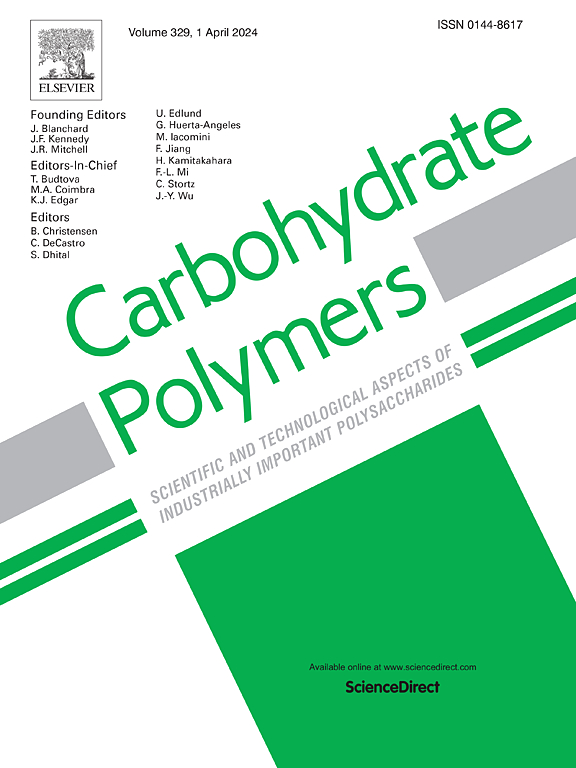电子束辐照预处理对淀粉-单宁酸配合物结构、理化性质及消化率的影响
IF 10.7
1区 化学
Q1 CHEMISTRY, APPLIED
引用次数: 0
摘要
电子束辐照(EBI)是一种低温、高能、非热的工艺,与传统的辐照技术相比,它能快速、均匀地进行处理,残余效应最小,特别适用于改性淀粉等敏感生物聚合物及其在功能性食品中的应用。本研究探讨了EBI对玉米淀粉(CS)的改性,并增强其与单宁酸(TA)的相互作用,形成淀粉-多酚复合物。CS用不同剂量的EBI预处理,随后与TA络合。合成的CS-TA配合物在多尺度结构、理化性质和可消化性方面进行了表征。在10%的TA负载下,EBI预处理促进了CS-TA结合,导致晶体顺序和黏附行为的显著改变,特别是在5 kGy和20 kGy时。EBI对淀粉形态没有明显的改变,但明显提高了CS-TA配合物的热稳定性。此外,复合物的体外消化率受EBI剂量和TA浓度的共同影响。这些发现突出了EBI技术在调整淀粉-多酚相互作用方面的独特潜力,为设计具有增强稳定性和营养特性的功能性食品成分提供了一种干净有效的方法。本文章由计算机程序翻译,如有差异,请以英文原文为准。

Effect of electron beam irradiation pretreatment on the structure, physicochemical properties, and digestibility of starch-tannic acid complexes
Electron beam irradiation (EBI) is a low-temperature, high-energy, non-thermal process that enables rapid, uniform treatment with minimal residual effects compared to conventional irradiation techniques, making it particularly suitable for modifying sensitive biopolymers like starch and its application in functional food. Our study explored EBI for modifying corn starch (CS) and enhancing its interaction with tannic acid (TA) to form starch–polyphenol complexes. CS was pretreated with EBI at varying doses, and subsequently complexed with TA. The resulting CS–TA complexes were characterized in terms of their multiscale structure, physicochemical properties, and digestibility. At 10 % TA loading, EBI pretreatment promoted CS–TA binding, leading to notable alterations in crystalline order and pasting behavior, particularly at 5 kGy and 20 kGy. While EBI did not visibly alter starch morphology, it significantly improved the thermal stability of CS–TA complexes. Additionally, the in vitro digestibility of the complexes was jointly influenced by the EBI dose and TA concentration. These findings highlight the unique potential of EBI technology for tuning starch–polyphenol interactions, offering a clean and effective approach for designing functional food ingredients with enhanced stability and nutritional properties.
求助全文
通过发布文献求助,成功后即可免费获取论文全文。
去求助
来源期刊

Carbohydrate Polymers
化学-高分子科学
CiteScore
22.40
自引率
8.00%
发文量
1286
审稿时长
47 days
期刊介绍:
Carbohydrate Polymers stands as a prominent journal in the glycoscience field, dedicated to exploring and harnessing the potential of polysaccharides with applications spanning bioenergy, bioplastics, biomaterials, biorefining, chemistry, drug delivery, food, health, nanotechnology, packaging, paper, pharmaceuticals, medicine, oil recovery, textiles, tissue engineering, wood, and various aspects of glycoscience.
The journal emphasizes the central role of well-characterized carbohydrate polymers, highlighting their significance as the primary focus rather than a peripheral topic. Each paper must prominently feature at least one named carbohydrate polymer, evident in both citation and title, with a commitment to innovative research that advances scientific knowledge.
 求助内容:
求助内容: 应助结果提醒方式:
应助结果提醒方式:


